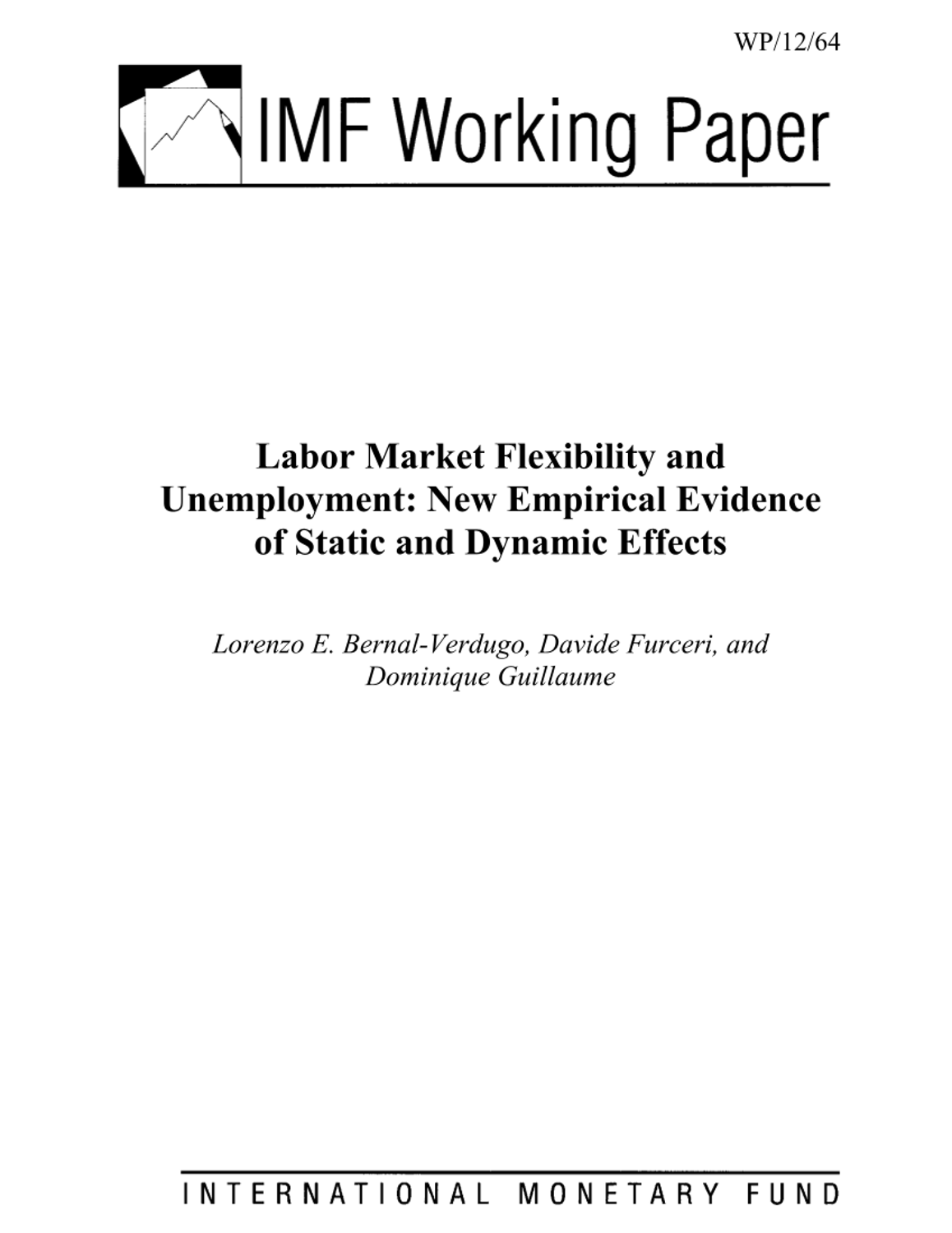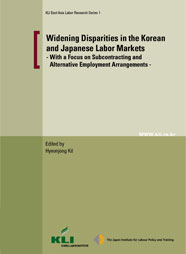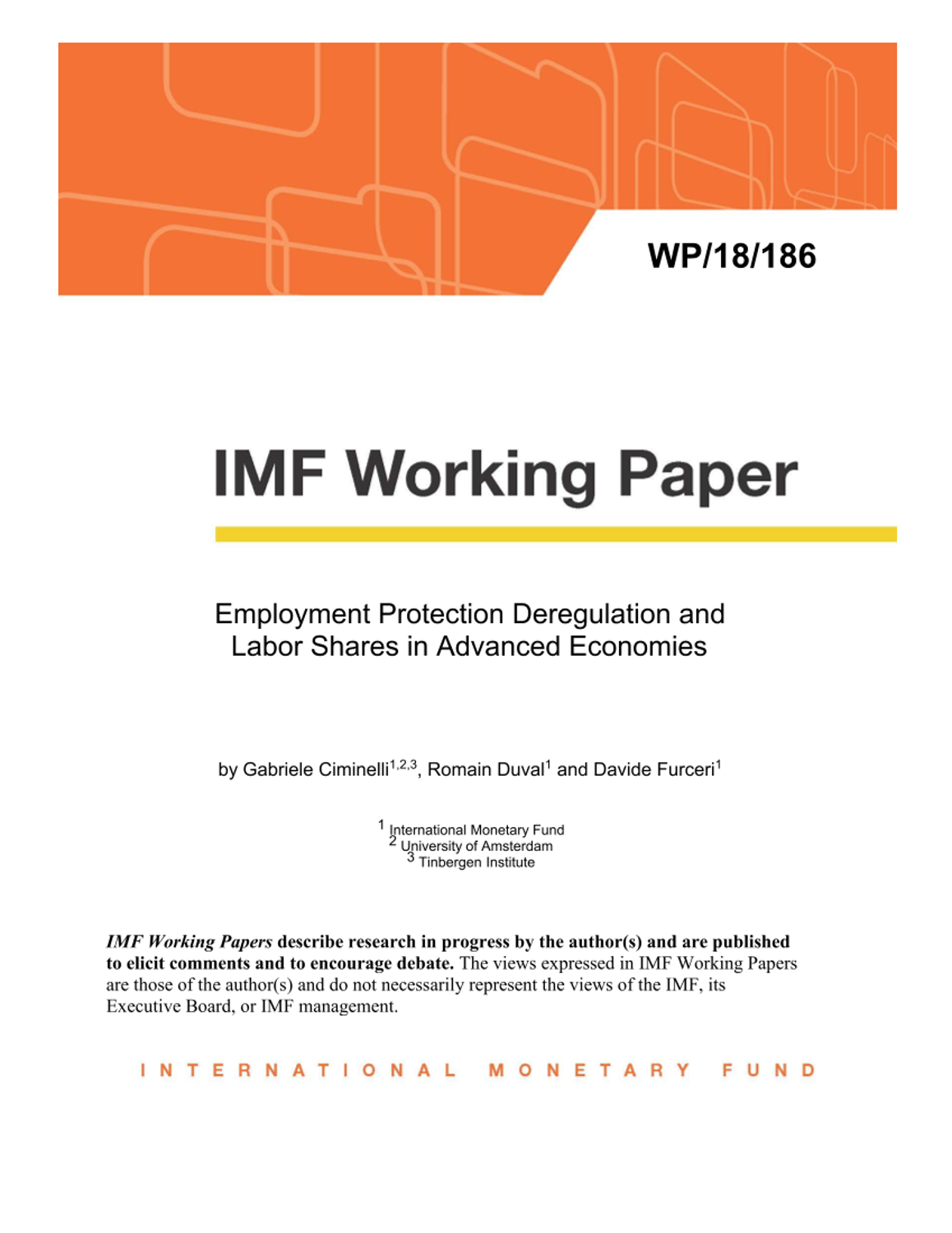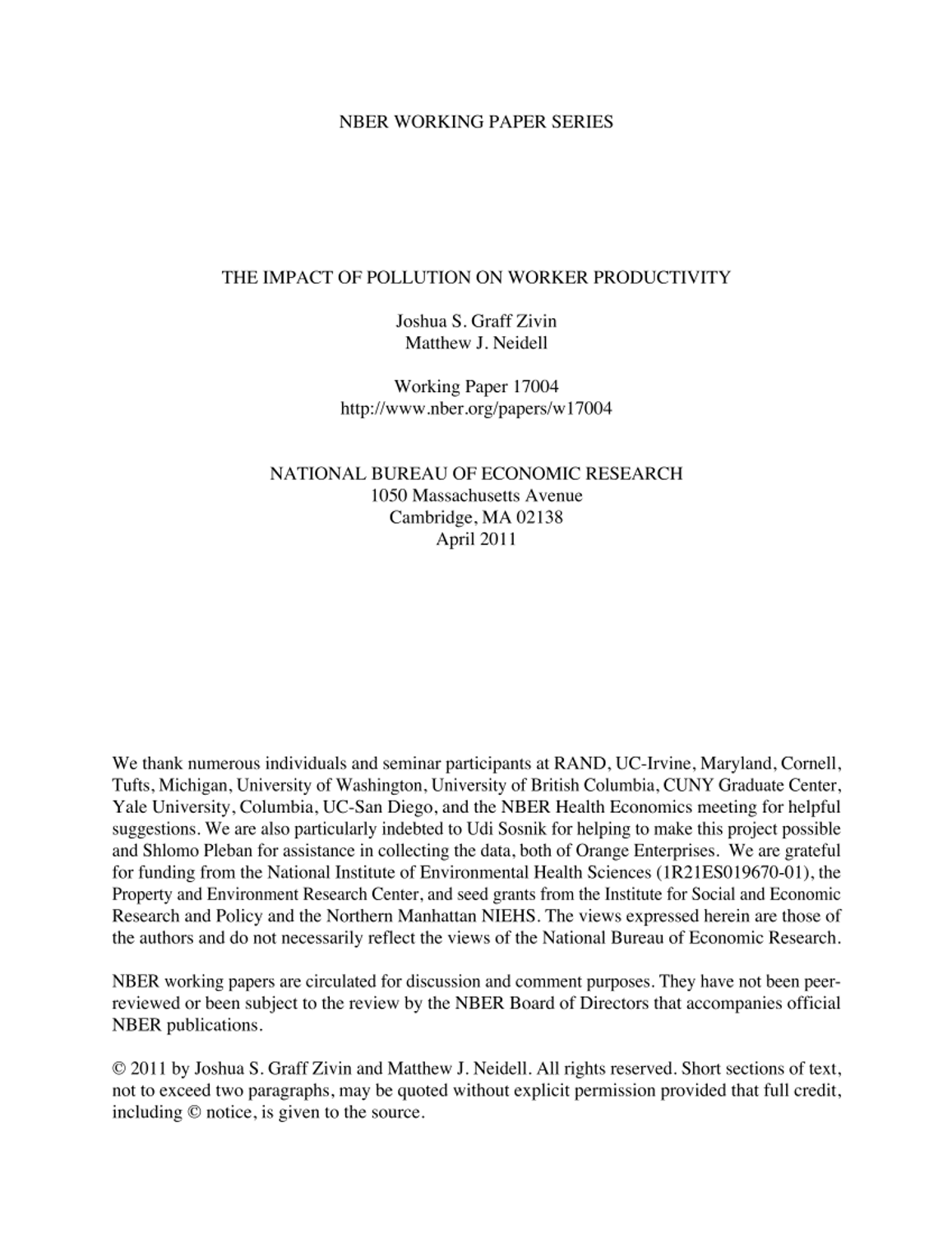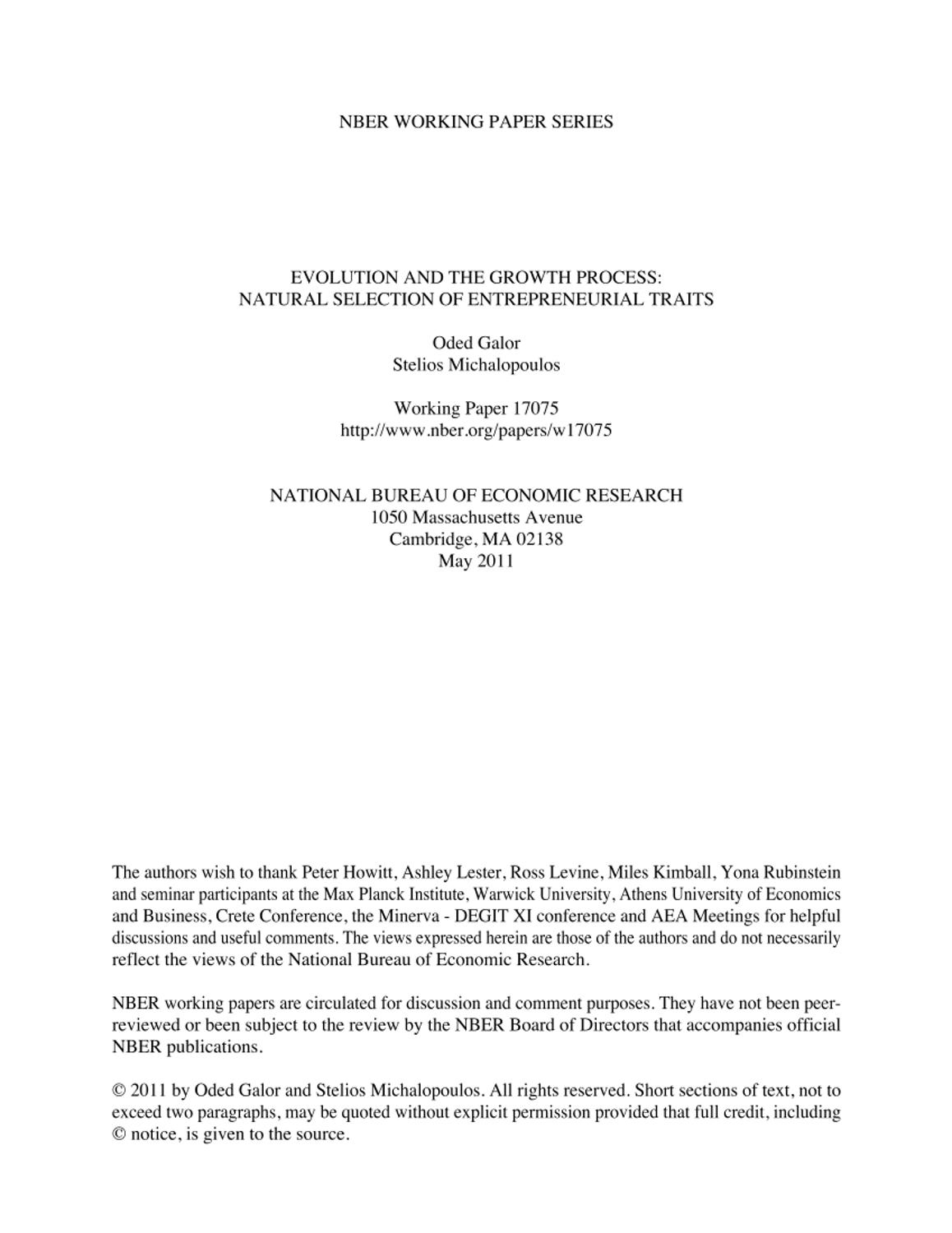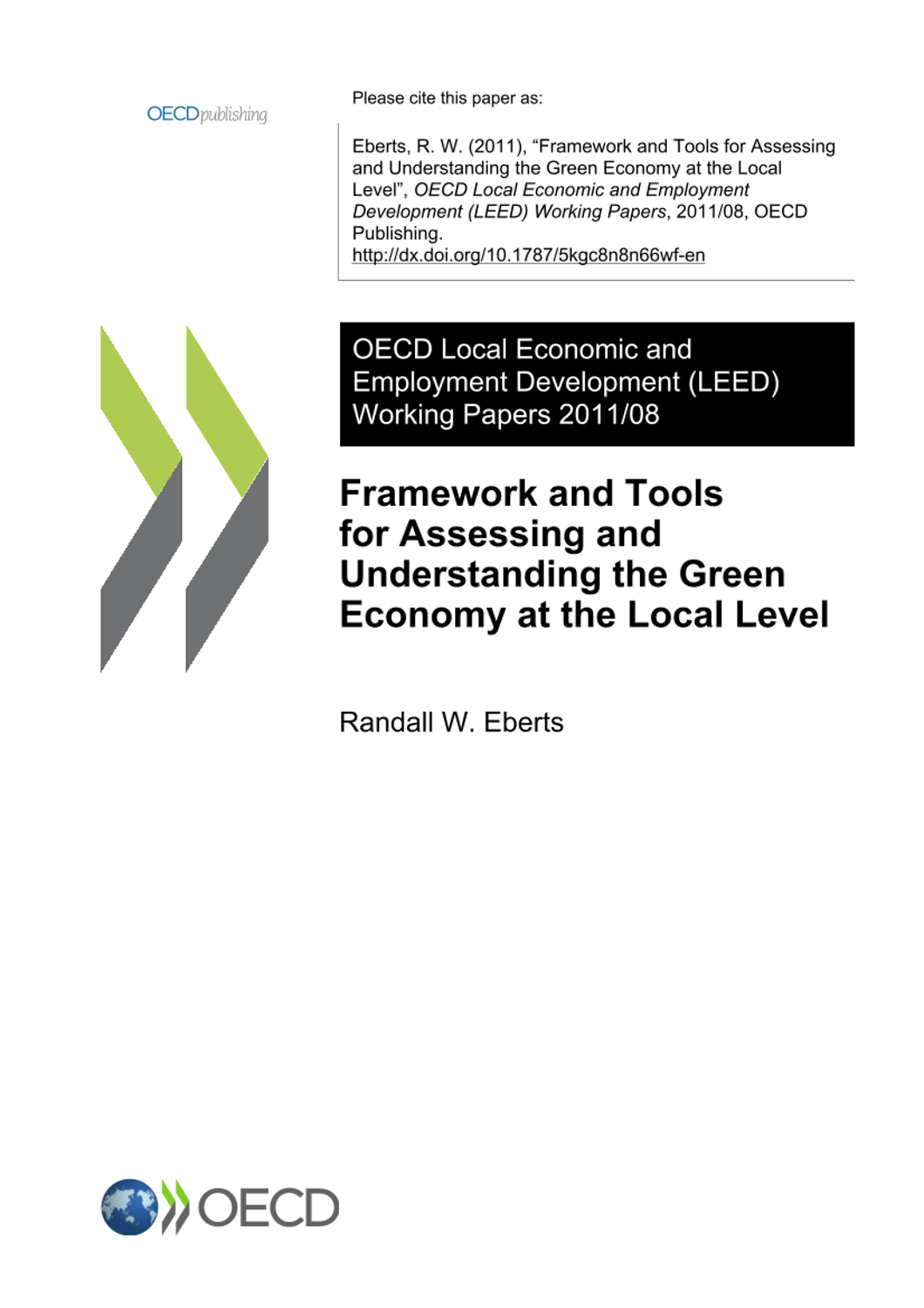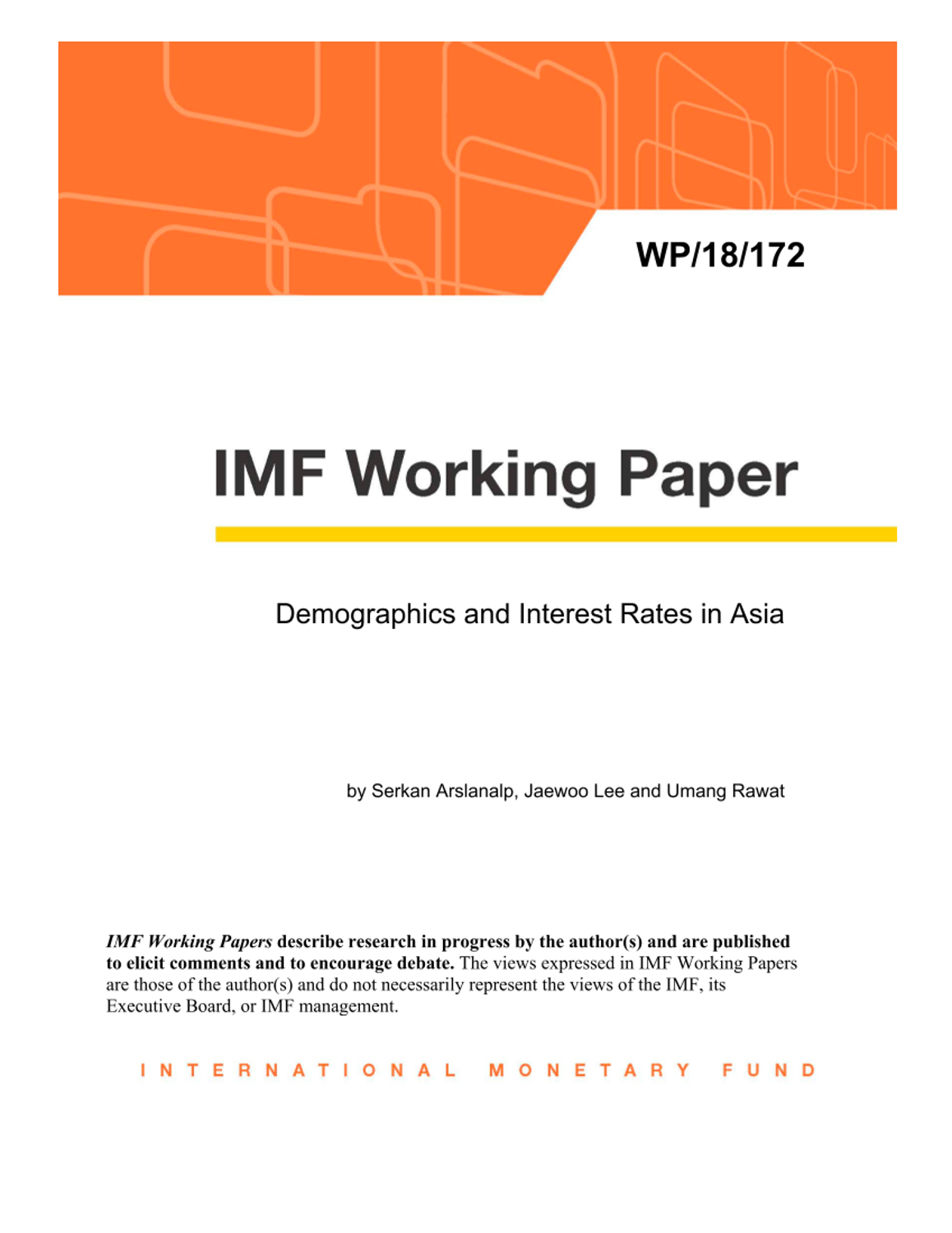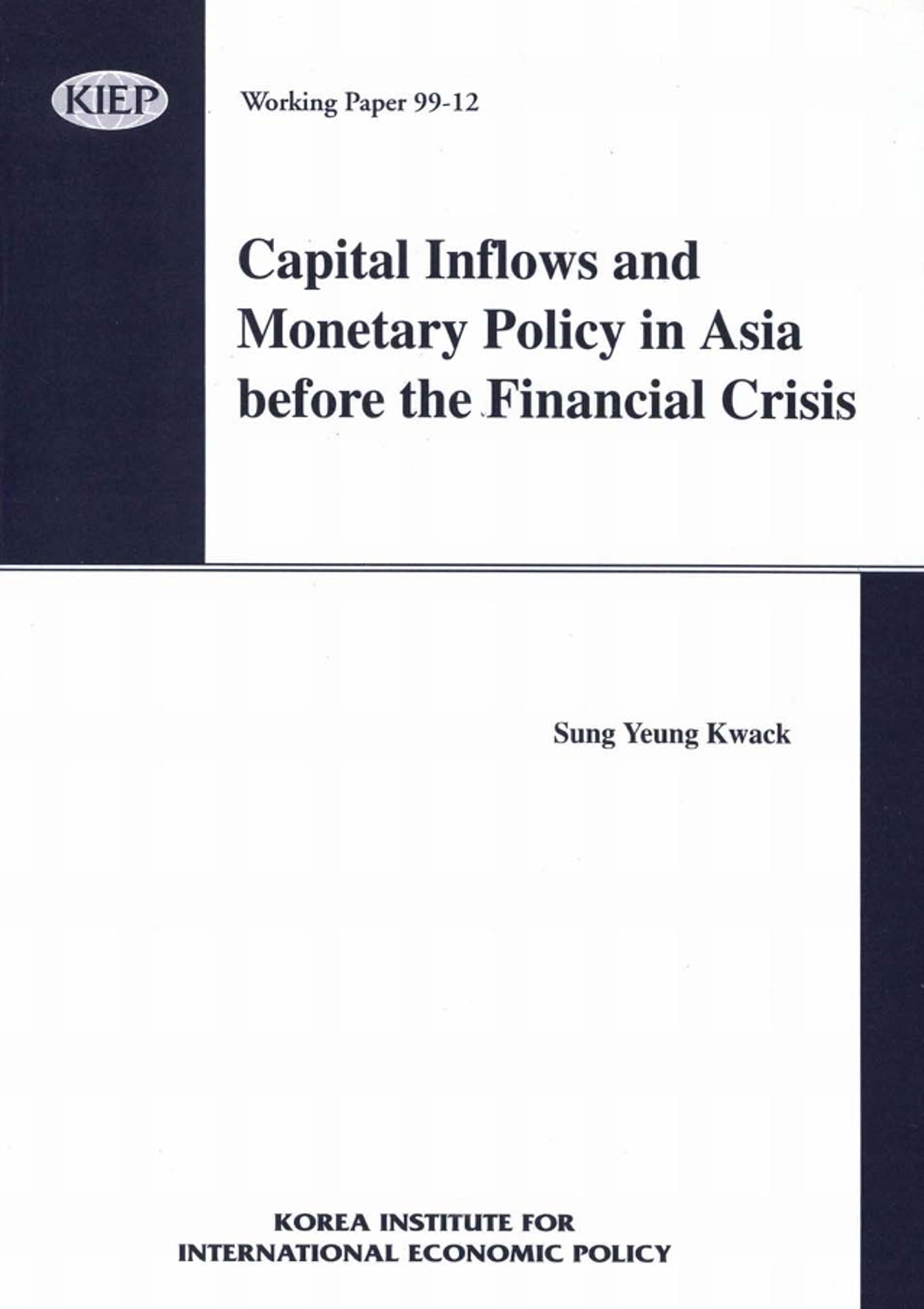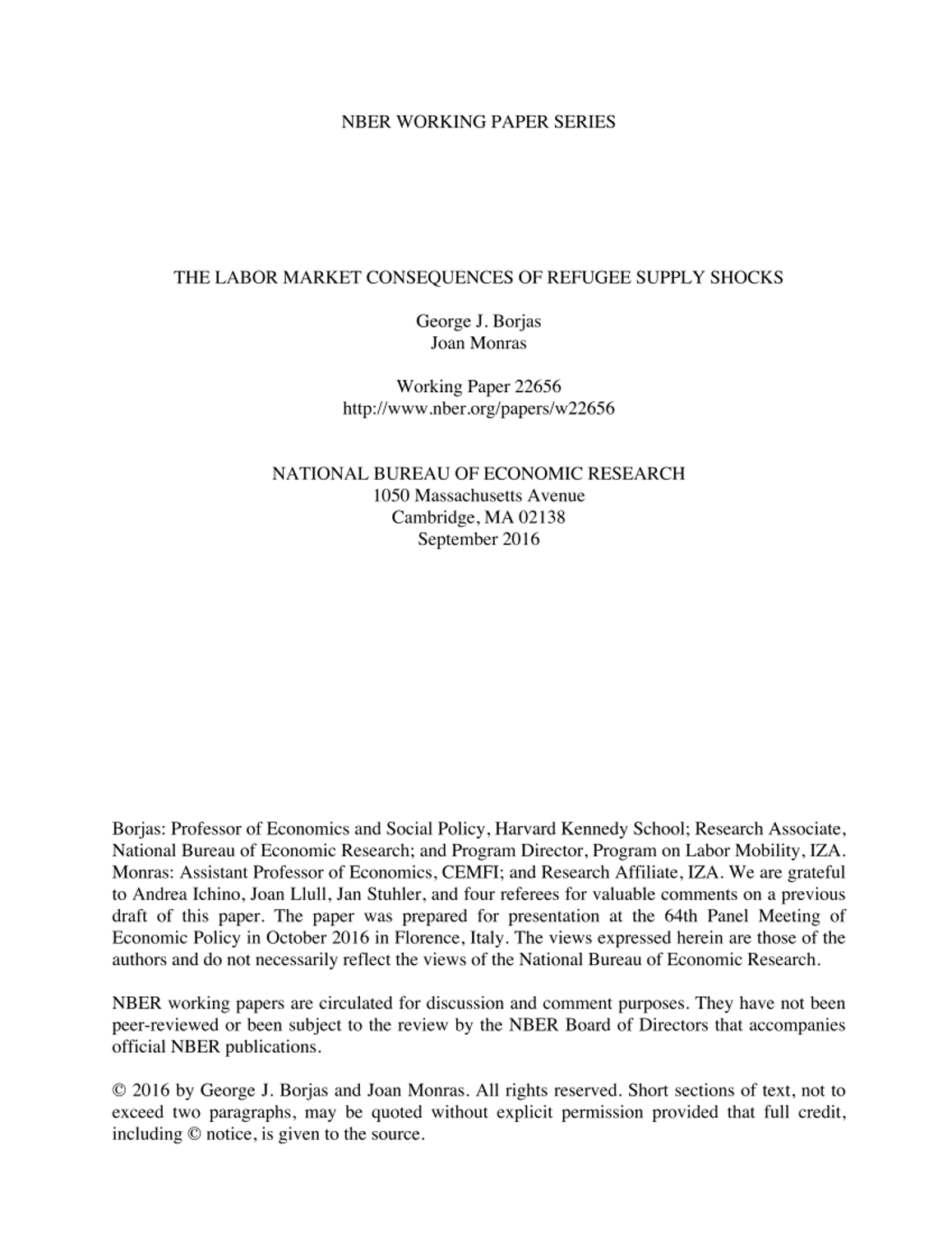
연구보고서NBER Working Paper 22656
(The) Labor Market Consequences of Refugee Supply Shocks
- 청구기호
- WP 22656
- 발행사항
- Cambridge : NBER, 2016
- 형태사항
- 76 p. :. PDF file ;. 1,577 KB
- 바로가기
소장정보
| 위치 | 등록번호 | 청구기호 / 출력 | 상태 | 반납예정일 |
|---|---|---|---|---|
이용 가능 (1) | ||||
| E0002053 | 대출가능 | - | ||
이용 가능 (1)
- 등록번호
- E0002053
- 상태/반납예정일
- 대출가능
- -
- 위치/청구기호(출력)
책 소개
The continuing inflow of hundreds of thousands of refugees into many European countries has ignited much political controversy and raised questions that require a fuller understanding of the determinants and consequences of refugee supply shocks. This paper revisits four historical refugee shocks to document their labor market impact. Specifically, we examine: The influx of Marielitos into Miami in 1980; the influx of French repatriates and Algerian nationals into France at the end of the Algerian Independence War in 1962; the influx of Jewish émigrés into Israel after the collapse of the Soviet Union in the early 1990s; and the exodus of refugees from the former Yugoslavia during the long series of Balkan wars between 1991 and 2001. We use a common empirical approach, derived from factor demand theory, and publicly available data to measure the impact of these shocks. Despite the differences in the political forces that motivated the various flows, and in economic conditions across receiving countries, the evidence reveals a common thread that confirms key insights of the canonical model of a competitive labor market: Exogenous supply shocks adversely affect the labor market opportunities of competing natives in the receiving countries, and often have a favorable impact on complementary workers. In short, refugee flows can have large distributional consequences.

